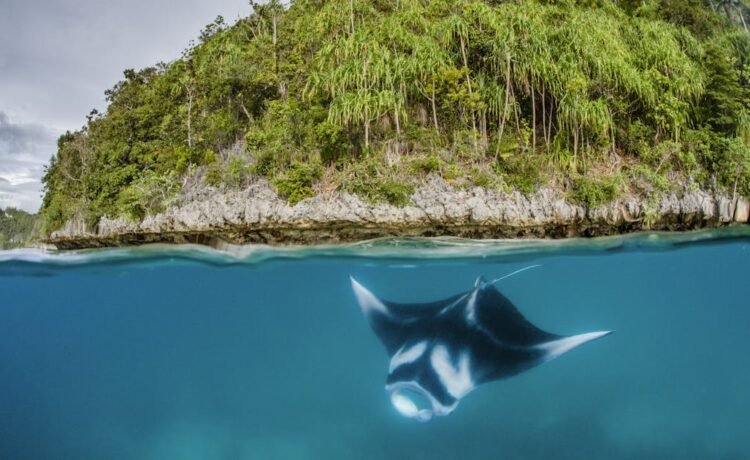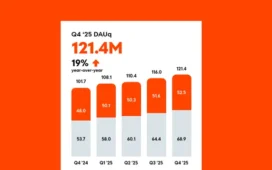A jewel of the “Coral Triangle” just got a reprieve.
The government of Indonesia announced this week that it had revoked the mining permits of four companies operating in Raja Ampat — an island chain in the country’s eastern province of West Papua, and one of the most biodiverse marine ecosystems
on Earth.
Facing public pressure, the government cited violations of environmental regulations for the move. Conservationists had warned that mining posed a serious threat to the region’s coral reefs and marine life.
“We welcome the government’s decision,” said Meizani Irmadhiany, who leads Konservasi Indonesia — the Indonesian affiliate of Conservation International — in a statement published this week. “This is a crucial step
in ensuring that areas with high ecological value like Raja Ampat remain protected from potentially destructive activities.
“The biodiversity and natural beauty of Raja Ampat are global assets that cannot be replaced.”
The seas around Raja Ampat are widely considered to be the epicenter of global marine biodiversity,
hosting about three-fourths of all known hard coral species, along with large populations of sharks and manta rays.
Yet the specter of destructive nickel mining has loomed, and last year, scientists researching the habits of reef mantas sounded the alarm.
Their study found that the Raja Ampat archipelago is the only place on Earth where populations of these mantas are growing — and
cautioned that mining could imperil a critical manta habitat just outside the region’s marine protected areas.
“We’re very concerned about the potential for nickel mining,” said Mark Erdmann, a Conservation International marine biologist and study co-author, in 2024. If mining companies begin open-pit mining on the small island of Kawe, he warned,
“every rain will produce muddy runoff that will flow straight into the ocean. And that will be disastrous for manta rays.”
It would also be disastrous for the economy, according to Konservasi Indonesia.
In a recent study, Konservasi Indonesia found that fish that regularly spawn near mining sites could abandon those areas if disturbed. For example, skipjack tuna, which are abundant in eastern Indonesian waters, use Raja Ampat as a migration route.
“If marine ecosystems in Raja Ampat are damaged, tuna populations in Indonesian waters will decline,” said Victor Nikijuluw, a marine expert at Konservasi Indonesia.
Tuna is a major economic driver for Indonesia, which in 2021 netted nearly $1.5 billion in revenues from tuna fisheries.
The threat from unsustainable mining, Nikijuluw added, would also severely jeopardize another major economic engine: tourism.
Charismatic marine species that are popular with dive tourists — sharks, manta rays and sea turtles — are plentiful in Raja Ampat, he said, but mining would affect them all.
“These large species, like whale sharks and other sharks, only appear where there are small fish,” he said. “If the environment is damaged — plankton gone, water polluted, small fish depleted — then the large fish will disappear,
too.”
The decision to revoke the mining permits shows that the government is thinking long-term, Irmadhiany said.
“Every policy concerning Raja Ampat must be grounded in sustainability and long-term protection, not short-term economic interests. This is a moment to show that Indonesia can lead in global marine conservation.”
Bruno Vander Velde is the managing director of storytelling at Conservation International. Want to read more stories like this? Sign up for email updates.
Also, please consider supporting our critical work.








Recent Comments